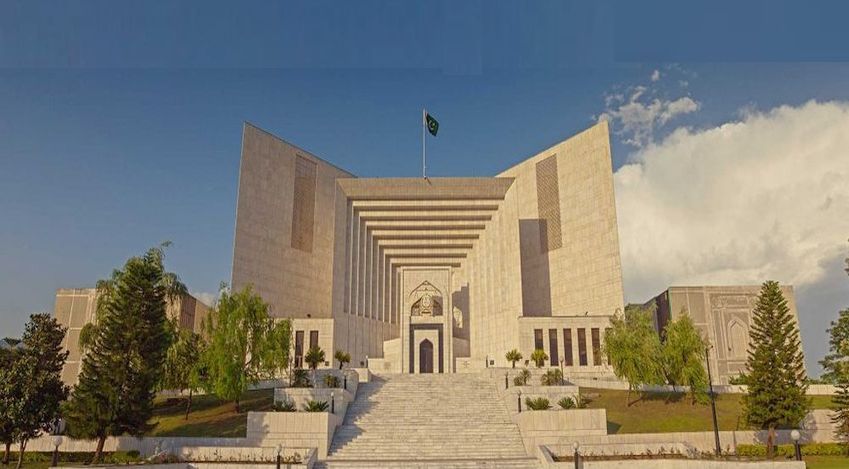Supreme Court of Pakistan Overturns Death Sentence and Acquits all convicts due to Serious Flaws in Identification and Lack of Reliable Evidence
Islamabad 08-03-2025: In a landmark ruling, the Supreme Court of Pakistan has overturned the death sentence of Rashid and acquitted three other co-accused in the Multan murder case due to serious flaws in identification, contradictory witness statements, and lack of reliable evidence. The verdict, delivered by a three-member bench comprising Mr. Justice Athar Minallah, Mr. Justice Irfan Saadat Khan, and Mr. Justice Malik Shahzad Ahmad Khan, reaffirms the principle that benefit of doubt must favor the accused.
The case stemmed from FIR No. 828/2009, registered at Police Station New Multan, regarding the murder of one deceased and the injury of another person in an alleged robbery attempt on August 6, 2009. The Anti-Terrorism Court (ATC), Multan, convicted and sentenced the accused as follows:
- Death penalty under Section 302(b) PPC and Section 7(a) of the Anti-Terrorism Act, 1997.
- Life imprisonment under Section 302(b) PPC read with Section 34 PPC.
- Life imprisonment under Section 302(b) PPC read with Section 109 PPC for abetment.
However, in 2015, the Lahore High Court upheld the convictions of two accused while acquitting one accused person, citing lack of direct evidence against him. Aggrieved, the accused challenged the conviction before the Supreme Court of Pakistan, while the State filed an appeal against one accused person’s acquittal.
During the proceedings, the defense counsel argued that the identification parade was held after an unexplained delay of over two months, violating standard legal procedures. Additionally, the injured eyewitness, never appeared in Court, raising serious doubts about the prosecution’s case.
The Supreme Court of Pakistan, after reviewing the case record, identified major legal flaws, including:
- Conducted months after the incident, violating Article 22 of the Qanun-e-Shahadat Order, 1984.
- Statements changed over time, and none of the eyewitnesses could attribute a specific role to any accused.
- The late inclusion of a religious element suggested an attempt to strengthen a weak case.
- Crime weapons were recovered after the arrest, and forensic reports were delayed.
The Supreme Court of Pakistan relied on key legal precedents, including:
- Kanwar Anwaar Ali Vs. The State (PLD 2019 SC 488): Emphasizing timely and fair identification procedures.
- Abdul Samad Vs. The State (2025 SCP 31): Affirming that even a single doubt in a criminal case must lead to acquittal.
- Subha Sadiq Vs. The State (2025 SCMR 50): Stressing the importance of strict adherence to identification protocols.
In its final ruling, the Supreme Court of Pakistan set aside the convictions and acquitted all three accused, citing lack of reliable evidence and granting benefit of doubt. The State’s appeal against one accused person’s acquittal was dismissed as infructuous.
This judgment reinforces fundamental legal principles, including:
- Strict compliance with procedural safeguards in identification parades.
- The necessity of clear, corroborated witness testimonies.
That convictions cannot be sustained on suspicion or weak evidence.
Powered by Froala Editor








